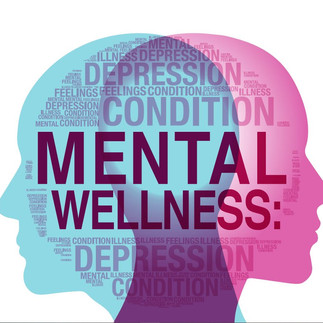Exploring the Uncharted Depths of Mental Resilience Through Literature as a Healing Journey
- A Arnold
- 1 day ago
- 4 min read
In today's fast-paced world, mental resilience is essential. It helps us tackle personal challenges, professional hurdles, and societal pressures. One powerful and sometimes forgotten source of mental strength is literature. Books, essays, and poetry not only reflect our experiences but also guide us on the path to healing. This post will explore how literature can aid in building mental resilience, providing specific examples and actionable tips along the way.
The Power of Stories
Stories have been a foundational part of human culture for centuries. From ancient epics to modern fiction, narratives shape our understanding of ourselves and the world. When engaging with stories, we often find echoes of our own experiences and emotions.
For example, J.K. Rowling's Harry Potter series resonates with readers, illustrating themes of friendship, bravery, and the battle against adversity. Surveys show that over 70% of readers express feeling more optimistic after finishing the series. These stories allow us to delve into complex situations from various angles, enhancing our empathy and emotional intelligence. By understanding the journeys of fictional characters, we can better navigate our own challenges.
The Healing Nature of Empathy
Empathy is crucial for building mental resilience. Literature offers a unique way to step into the lives of characters facing hardship. By following their journeys, we develop compassion and realize we are not alone in our struggles.
Take, for instance, the novel The Kite Runner by Khaled Hosseini. Readers witness the pain of betrayal and the power of redemption as the protagonist confronts his past. Such narratives help us learn coping strategies and resilience, giving us inspiration and determination when faced with our own difficulties. Studies indicate that reading literary fiction can increase our ability to understand others' emotions, making us better equipped to handle personal challenges.
Literature and Personal Transformation
Engaging with literature often sparks reflection and transformation. Characters can serve as mirrors, helping us uncover new insights about ourselves.
Consider Wild by Cheryl Strayed, where the author shares her journey of self-discovery while hiking the Pacific Crest Trail. Readers often find themselves inspired to take action in their own lives, whether through travel, self-improvement, or confronting past traumas. Literature can create significant shifts in our thinking, encouraging a more resilient mindset and positive outlook on life.
Building Mental Resilience Through Genres
Different genres of literature can serve specific roles in your healing journey.
Fiction
Fiction immerses readers in alternate realities, making it easier to process complex feelings safely. For instance, The Fault in Our Stars by John Green explores themes of love and loss, helping readers find comfort in shared experiences.
Poetry
Poetry distills emotions into concise language. The poem “The Peace of Wild Things” by Wendell Berry uses nature as a metaphor for finding calm in chaos. The rhythmic quality and vivid imagery can evoke feelings of serenity, promoting emotional healing.
Non-Fiction
Biographies and self-help books provide real-life examples of resilience, serving as practical guides. For example, “Educated” by Tara Westover details a woman's quest for knowledge against overwhelming odds, inspiring readers to cultivate their own strength.
Each genre offers unique benefits, encouraging exploration and connection that foster healing.
Creating a Personal Reading List
To begin your healing journey through literature, a personalized reading list can be incredibly helpful. Here are some tips for curating a collection that promotes mental resilience:
Identify Themes: Consider what you need. Are you looking for inspiration, understanding, or comfort? Reflecting on your goals will help guide your choices.
Diverse Voices: Include works from authors with different backgrounds and experiences. This will broaden your perspective and deepen your understanding of resilience.
Balance Comfort and Challenge: Curate a mix of books that provide comfort and those that challenge your thinking. This balance can foster growth.
Journaling: Keep a journal to document insights, emotions, and connections while reading. Reflecting on your experiences can enhance your healing journey.
Engaging critically with literature this way can significantly deepen your process of healing and bolster mental resilience.
Literature as a Tool for Community Building
Books connect us with others. Book clubs and literary discussions create bonds among individuals seeking solace in literature. Sharing thoughts on a novel or poem allows for diverse insights, enriching the collective experience.
Research shows that participation in book clubs can lead to increased feelings of belonging and improved mental health. The support gained from discussing literature with others can amplify your healing process, creating a nurturing environment for resilience to take root.
The Path to Healing Through Literature
The journey through literature can lead to profound healing and personal growth. By embracing stories, we nurture mental resilience and gain a deeper understanding of ourselves and others. Books become our guides, illuminating paths to navigate life’s challenges.
As you embark on this literary adventure, remember that each book is a stepping stone toward facing life's adversities with strength. Pick up a book that speaks to you, immerse yourself in its world, and let its lessons guide you toward a more resilient and hopeful future. Exploring mental resilience through literature can open doors to healing that are both personal and transformative.







Comments